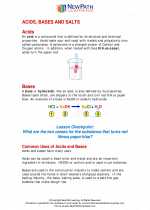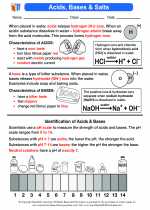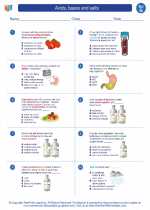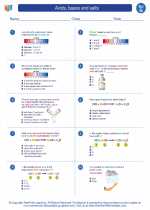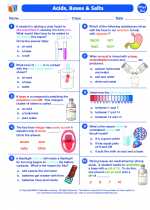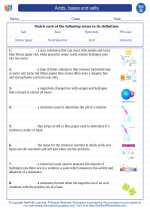Decomposition Reactions
A decomposition reaction is a type of chemical reaction in which a single compound breaks down into two or more simpler substances. This process is the opposite of a synthesis reaction, where multiple substances combine to form a single compound.
General Form of a Decomposition Reaction
The general form of a decomposition reaction can be represented as:
AB → A + B
Where AB is the original compound, and A and B are the simpler substances it breaks down into.
Examples of Decomposition Reactions
Some common examples of decomposition reactions include:
- The decomposition of hydrogen peroxide into water and oxygen gas:
2H2O2 → 2H2O + O2
- The decomposition of calcium carbonate into calcium oxide and carbon dioxide gas:
CaCO3 → CaO + CO2
- The decomposition of water into hydrogen gas and oxygen gas (through electrolysis):
2H2O → 2H2 + O2
Factors Affecting Decomposition Reactions
Several factors can affect the rate of decomposition reactions, including:
- Temperature
- Concentration of reactants
- Catalysts
- Surface area of the reactants
Study Guide
When studying decomposition reactions, it's important to understand the following key points:
- Recognizing the general form of a decomposition reaction: AB → A + B
- Identifying examples of decomposition reactions and understanding the products formed
- Understanding the factors that can affect the rate of decomposition reactions
- Practicing balancing chemical equations for decomposition reactions
Additionally, it's helpful to review specific examples of decomposition reactions and their applications in various chemical processes.
By mastering these concepts, you will have a solid understanding of decomposition reactions and their significance in the field of chemistry.
.